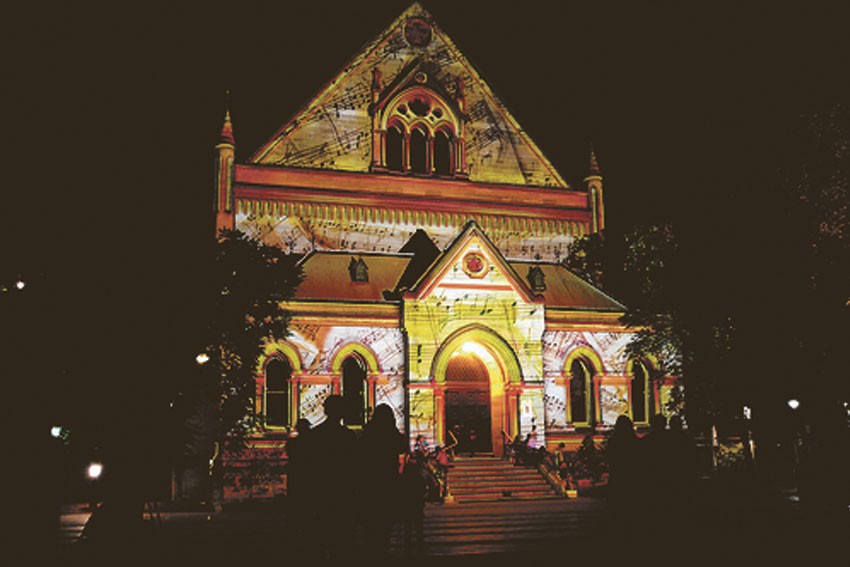Balancing the old and new

Nineteenth Century American Pulitzer Prize winning historian and author, Henry Adams once said; “a teacher affects eternity; one can never tell where their influence stops”.
Nineteenth Century American Pulitzer Prize winning historian and author, Henry Adams once said; “a teacher affects eternity; one can never tell where their influence stops”.
This idea has stayed with me throughout my career as a musician and as an educator, and when it comes to the impact of music – and music teaching – in our lives, there is nothing more apt than this notion of the deep linear impact of mentorship. Most of us can look back at our own formal education and find an inspirational mentor whose passion, care and dedication and is still influencing our lives.
We are living in interesting times where unpredictability, the increased corporatisation of artistic and educational infrastructure, and ever-increasing financial pressures continue to have a deleterious impact on the Australian cultural landscape. This certainly rings true in the world of music education. When talking about the challenges of high-end art and its ability to diversify in order to survive, I believe it is important to first look to the past.
The University of Adelaide’s Elder Conservatorium of Music is the oldest tertiary music school in Australia and boasts a history that epitomises some of our greatest musical and educational traditions. Its century-old staff list includes some of the most notable and influential musicians in Australia’s musical history: Bishop, Ives, Tancibudek, Peters, Dosser and Leske to name but a few. The Elder Conservatorium has been ‘influencing eternity’ for well over a hundred years.
The Elder Conservatorium does many things but at its core are three elements: artistic and creative activity, teaching and learning, and community engagement, including concert giving. All three of these are inextricably linked. There is a synergy between these three elements that values both tradition and innovation; that values the richness of cultural memory as well as the essential need to shape our own future with the cutting edge of innovation. And there is at the heart of our work the eternal fire of inspiration.
With financial pressures continuing to squeeze the educational sector, Conservatoriums around the country face great challenges in providing the quality musical education and training that is expected by the profession – and by the students. Under-funding of Conservatorium style music education continues to be an issue – particularly at the federal level. By its nature, music education is expensive and there is no getting around this. It is no different to training to be a surgeon or a dentist – music needs highly specialised and focused training and this comes at a cost.
Music training at the Conservatorium includes a variety of educational modes – lectures, tutorials, rehearsals, master classes and concerts – but at the heart of any instrumental or vocal student’s musical education is the one-to-one lesson. Every major conservatorium around the world (from the Julliard School in New York to the Sibelius Academy in Finland) has one-to-one teaching at its core. Many Conservatoriums overseas dedicate considerably more hours of one-to-one training than those in Australia. The unfortunate fact is that the Federal Government’s base-funding model virtually guarantees that every new music student awarded a place in a conservatorium-style undergraduate music program in this country will push the institution further into debt. The bottom line is that the expenditure needed to effectively train and educate musicians simply isn’t matched by the income received.
As a response to the pressures of underfunding, the Elder Conservatorium continues to look at ways and strategies to assist in the diversification of its offerings. We embrace the challenge of finding the balance between maintaining our proud traditions while still moving with the times and responding to the needs of our very diverse audiences.
Probably the most publicly visible aspects of Conservatorium life are our various concerts. We are fortunate to have one of Australia’s leading concert halls – Elder Hall – in the heart of our city and campus. Increasingly Elder Hall has become a ‘hall for everyone’. The level of activity and diversity in talent that Elder Hall attracts is inspiring. Musicians and cultural groups from across the city and around the world transform the hall into a cultural hub. There are presently plans to diversify the venue further in conjunction with the current restoration appeal.
On a regular basis audiences can enjoy the spacious acoustic and clarity of Elder Hall and hear a huge range of concerts and other activities from classical symphonies to celebrations of the ‘jazz great’ to glorious unaccompanied choral music to experimental music for computers to the latest popular music composed by the students of the Conservatorium’s newest course. And speaking of diversity, the Conservatorium now engages in specialised training, education and creative activities in eight specialisations: Classical Performance, Jazz Performance, Music Education, Performance & Pedagogy, Composition, Musicology, Sonic Arts (formerly Music Technology) and Popular Music & Creative Technologies. It is this diversity of offerings, combined with a judicious and respectful balance of tradition and innovation that will ensure the Conservatorium remains not only relevant but in the hearts and minds of all South Australians.
Carl Crossin OAM is the Director of the Elder Conservatorium of Music